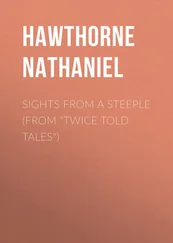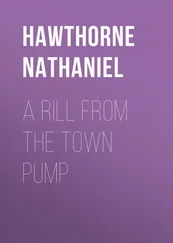Nathaniel Hawthorne - Passages from the English Notebooks, Volume 1
Здесь есть возможность читать онлайн «Nathaniel Hawthorne - Passages from the English Notebooks, Volume 1» — ознакомительный отрывок электронной книги совершенно бесплатно, а после прочтения отрывка купить полную версию. В некоторых случаях можно слушать аудио, скачать через торрент в формате fb2 и присутствует краткое содержание. Жанр: literature_19, foreign_antique, foreign_prose, на английском языке. Описание произведения, (предисловие) а так же отзывы посетителей доступны на портале библиотеки ЛибКат.
- Название:Passages from the English Notebooks, Volume 1
- Автор:
- Жанр:
- Год:неизвестен
- ISBN:нет данных
- Рейтинг книги:4 / 5. Голосов: 1
-
Избранное:Добавить в избранное
- Отзывы:
-
Ваша оценка:
- 80
- 1
- 2
- 3
- 4
- 5
Passages from the English Notebooks, Volume 1: краткое содержание, описание и аннотация
Предлагаем к чтению аннотацию, описание, краткое содержание или предисловие (зависит от того, что написал сам автор книги «Passages from the English Notebooks, Volume 1»). Если вы не нашли необходимую информацию о книге — напишите в комментариях, мы постараемся отыскать её.
Passages from the English Notebooks, Volume 1 — читать онлайн ознакомительный отрывок
Ниже представлен текст книги, разбитый по страницам. Система сохранения места последней прочитанной страницы, позволяет с удобством читать онлайн бесплатно книгу «Passages from the English Notebooks, Volume 1», без необходимости каждый раз заново искать на чём Вы остановились. Поставьте закладку, и сможете в любой момент перейти на страницу, на которой закончили чтение.
Интервал:
Закладка:
The lawn around Poulton Hall, like thousands of other lawns in England, is very beautiful, but requires great care to keep it so, being shorn every three or four days. No other country will ever have this charm, nor the charm of lovely verdure, which almost makes up for the absence of sunshine. Without the constant rain and shadow which strikes us as so dismal, these lawns would be as brown as an autumn leaf. I have not, thus far, found any such magnificent trees as I expected. Mr. B. told me that three oaks, standing in a row on his lawn, were the largest in the county. They were very good trees, to be sure, and perhaps four feet in diameter near the ground, but with no very noble spread of foliage. In Concord there are, if not oaks, yet certainly elms, a great deal more stately and beautiful. But, on the whole, this lawn, and the old Hall in the midst of it, went a good way towards realizing some of my fancies of English life.
By and by a footman, looking very quaint and queer in his livery coat, drab breeches, and white stockings, came to invite me to the table, where I found Mr. B. and his sisters and guests sitting at the fruit and wine. There were port, sherry, madeira, and one bottle of claret, all very good; but they take here much heavier wines than we drink now in America. After a tolerably long session we went to the tea-room, where I drank some coffee, and at about the edge of dusk the carriage drew up to the door to take us home. Mr. B. and his sisters have shown us genuine kindness, and they gave us a hearty invitation to come and ramble over the house whenever we pleased, during their absence in Scotland. They say that there are many legends and ghost-stories connected with the house; and there is an attic chamber, with a skylight, which is called the Martyr's chamber, from the fact of its having, in old times, been tenanted by a lady, who was imprisoned there, and persecuted to death for her religion. There is an old black-letter library, but the room containing it is shut, barred, and padlocked, – the owner of the house refusing to let it be opened, lest some of the books should be stolen. Meanwhile the rats are devouring them, and the damps destroying them.
August 9th. – A pretty comfortable day, as to warmth, and I believe there is sunshine overhead; but a sea-cloud, composed of fog and coal-smoke, envelops Liverpool. At Rock Ferry, when I left it at half past nine, there was promise of a cheerful day. A good many gentlemen (or, rather, respectable business people) came in the boat, and it is not unpleasant, on these fine mornings, to take the breezy atmosphere of the river. The huge steamer Great Britain, bound for Australia, lies right off the Rock Ferry landing; and at a little distance are two old hulks of ships of war, dismantled, roofed over, and anchored in the river, formerly for quarantine purposes, but now used chiefly or solely as homes for old seamen, whose light labor it is to take care of these condemned ships. There are a great many steamers plying up and down the river to various landings in the vicinity; and a good many steam-tugs; also, many boats, most of which have dark-red or tan-colored sails, being oiled to resist the wet; also, here and there, a yacht or pleasure-boat, and a few ships riding stately at their anchors, probably on the point of sailing. The river, however, is by no means crowded; because the immense multitude of ships are ensconced in the docks, where their masts make an intricate forest for miles up and down the Liverpool shore. The small black steamers, whizzing industriously along, many of them crowded with passengers, snake up the chief life of the scene. The Mersey has the color of a mud-puddle, and no atmospheric effect, as far as I have seen, ever gives it a more agreeable tinge.
Visitors to-day, thus far, have been H. A. B., with whom I have arranged to dine with us at Rock Ferry, and then he is to take us on board the Great Britain, of which his father is owner (in great part). Secondly, Monsieur H., the French Consul, who can speak hardly any English, and who was more powerfully scented with cigar-smoke than any man I ever encountered; a polite, gray-haired, red-nosed gentleman, very courteous and formal. Heaven keep him from me! At one o'clock, or thereabouts, I walked into the city, down through Lord Street, Church Street, and back to the Consulate through various untraceable crookednesses. Coming to Chapel Street, I crossed the graveyard of the old Church of St. Nicholas. This is, I suppose, the oldest sacred site in Liverpool, a church having stood here ever since the Conquest, though, probably, there is little or nothing of the old edifice in the present one, either the whole of the edifice or else the steeple, being thereto shaken by a chime of bells, – perhaps both, at different times, – has tumbled down; but the present church is what we Americans should call venerable. When the first church was built, and long afterwards, it must have stood on the grassy verge of the Mersey; but now there are pavements and warehouses, and the thronged Prince's and George's Docks, between it and the river; and all around it is the very busiest bustle of commerce, rumbling wheels, hurrying men, porter-shops, everything that pertains to the grossest and most practical life. And, notwithstanding, there is the broad churchyard extending on three sides of it, just as it used to be a thousand years ago. It is absolutely paved from border to border with flat tombstones, on a level with the soil and with each other, so that it is one floor of stone over the whole space, with grass here and there sprouting between the crevices. All these stones, no doubt, formerly had inscriptions; but as many people continually pass, in various directions, across the churchyard, and as the tombstones are not of a very hard material, the records on many of them are effaced. I saw none very old. A quarter of a century is sufficient to obliterate the letters, and make all smooth, where the direct pathway from gate to gate lies over the stones. The climate and casual footsteps rub out any inscription in less than a hundred years. Some of the monuments are cracked. On many is merely cut "The burial place of" so and so; on others there is a long list of half-readable names; on some few a laudatory epitaph, out of which, however, it were far too tedious to pick the meaning. But it really is interesting and suggestive to think of this old church, first built when Liverpool was a small village, and remaining, with its successive dead of ten centuries around it, now that the greatest commercial city in the world has its busiest centre there. I suppose people still continue to be buried in the cemetery. The greatest upholders of burials in cities are those whose progenitors have been deposited around or within the city churches. If this spacious churchyard stood in a similar position in one of our American cities, I rather suspect that long ere now it would have run the risk of being laid out in building-lots, and covered with warehouses; even if the church itself escaped, – but it would not escape longer than till its disrepair afforded excuse for tearing it down. And why should it, when its purposes might be better served in another spot?
We went on board the Great Britain before dinner, between five and six o'clock, – a great structure, as to convenient arrangement and adaptation, but giving me a strong impression of the tedium and misery of the long voyage to Australia. By way of amusement, she takes over fifty pounds' worth of playing-cards, at two shillings per pack, for the use of passengers; also, a small, well-selected library. After a considerable time spent on board, we returned to the hotel and dined, and Mr. B. took his leave at nine o'clock.
August 10th. – I left Rock Ferry for the city at half past nine. In the boat which arrived thence, there were several men and women with baskets on their heads, for this is a favorite way of carrying burdens; and they trudge onward beneath them, without any apparent fear of an overturn, and seldom putting up a hand to steady them. One woman, this morning, had a heavy load of crockery; another, an immense basket of turnips, freshly gathered, that seemed to me as much as a man could well carry on his back. These must be a stiff-necked people. The women step sturdily and freely, and with not ungraceful strength. The trip over to town was pleasant, it being a fair morning, only with a low-hanging fog. Had it been in America, I should have anticipated a day of burning heat.
Читать дальшеИнтервал:
Закладка:
Похожие книги на «Passages from the English Notebooks, Volume 1»
Представляем Вашему вниманию похожие книги на «Passages from the English Notebooks, Volume 1» списком для выбора. Мы отобрали схожую по названию и смыслу литературу в надежде предоставить читателям больше вариантов отыскать новые, интересные, ещё непрочитанные произведения.
Обсуждение, отзывы о книге «Passages from the English Notebooks, Volume 1» и просто собственные мнения читателей. Оставьте ваши комментарии, напишите, что Вы думаете о произведении, его смысле или главных героях. Укажите что конкретно понравилось, а что нет, и почему Вы так считаете.












